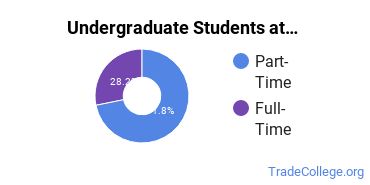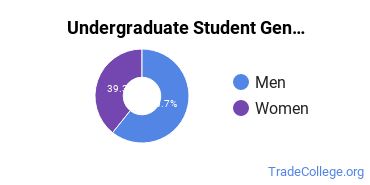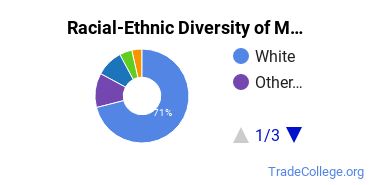Find Trade Colleges
Manchester Community College Trade Programs
Manchester Community College is a public institution located in Manchester, New Hampshire. The location of the school is great for students who enjoy the amenities of city life.
Featured schools near , edit
Where Is Manchester Community College?

Contact details for MCC are given below.
| Contact Details | |
|---|---|
| Address: | 1066 Front St, Manchester, NH 03102-8518 |
| Phone: | 603-206-8000 |
| Website: | www.mccnh.edu |
Can I Afford MCC?
| In State | Out of State | |
|---|---|---|
| Tuition | $6,450 | $14,700 |
| Fees | $640 | $640 |
| Books and Supplies | $1,750 | $1,750 |
Student Loan Debt
It's not uncommon for college students to take out loans to pay for school. In fact, almost 66% of students nationwide depend at least partially on loans. At MCC, approximately 34% of students took out student loans averaging $5,536 a year. That adds up to $22,144 over four years for those students.
Manchester Community College Undergraduate Student Diversity

Gender Diversity
Of the 676 full-time undergraduates at MCC, 60% are male and 40% are female.

Racial-Ethnic Diversity
The racial-ethnic breakdown of Manchester Community College students is as follows.

| Race/Ethnicity | Number of Grads |
|---|---|
| Asian | 17 |
| Black or African American | 26 |
| Hispanic or Latino | 54 |
| White | 497 |
| International Students | 0 |
| Other Races/Ethnicities | 82 |
Manchester Community College Trade School Concentrations
The table below shows the number of awards for each concentration.
| Major | Basic Certificate | Associate’s | Undergraduate Certificate | TOTAL |
|---|---|---|---|---|
| Heating, Air Conditioning, Ventilation & Refrigeration Maintenance Technology/Technician | 11 | 9 | 14 | 34 |
| Medical/Clinical Assistant | 0 | 6 | 15 | 21 |
| Welding Technology/Welder | 8 | 12 | 1 | 21 |
| Lineworker | 18 | 0 | 0 | 18 |
| Electrician | 0 | 10 | 7 | 17 |
| General Health Services/Allied Health/Health Sciences | 0 | 17 | 0 | 17 |
| Automobile/Automotive Mechanics Technology/Technician | 3 | 14 | 0 | 17 |
| Manufacturing Engineering Technology | 1 | 15 | 0 | 16 |
| Phlebotomy Technician/Phlebotomist | 14 | 0 | 0 | 14 |
| Medical Insurance Coding Specialist/Coder | 0 | 0 | 8 | 8 |
| Community Health Services/Liaison/Counseling | 0 | 6 | 0 | 6 |
| Health Information Management | 0 | 5 | 0 | 5 |
| Medical Administrative/Executive Assistant & Medical Secretary | 4 | 0 | 0 | 4 |
| Robotics Technology | 2 | 0 | 0 | 2 |
| Motorcycle Maintenance & Repair Technology/Technician | 2 | 0 | 0 | 2 |
| Substance Abuse/Addiction Counseling | 1 | 0 | 0 | 1 |
| Mental Health Counseling/Counselor | 0 | 0 | 0 | 0 |
| TOTAL | 64 | 94 | 45 | 203 |
References
*The racial-ethnic minorities count is calculated by taking the total number of students and subtracting white students, international students, and students whose race/ethnicity was unknown. This number is then divided by the total number of students at the school to obtain the racial-ethnic minorities percentage.
More about our data sources and methodologies.
